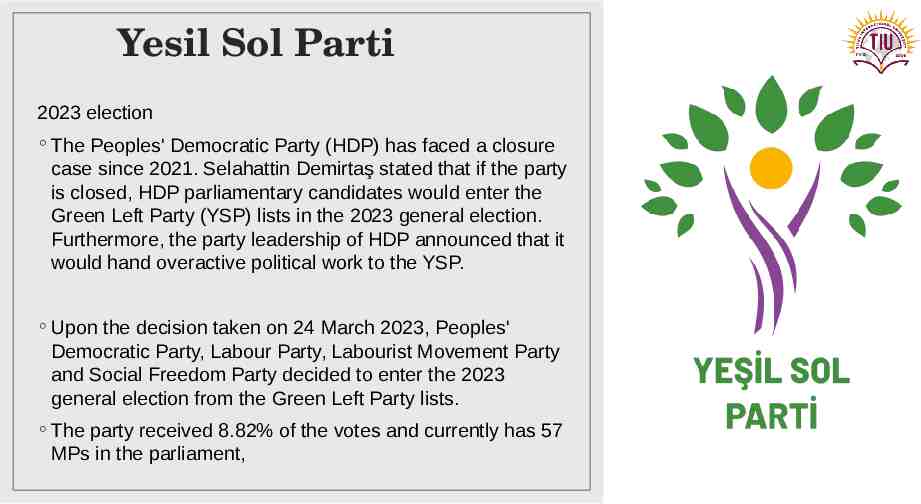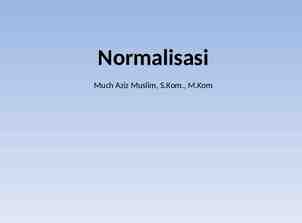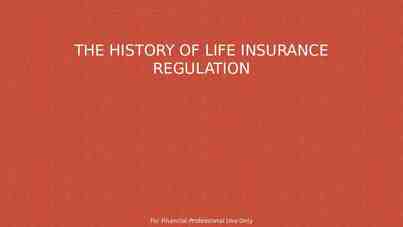KURDS IN TURKEY Bayad Sarwar Modern Political History of Kurdistan IRD
28 Slides2.83 MB

KURDS IN TURKEY Bayad Sarwar Modern Political History of Kurdistan IRD 215 Semester: 3rd Week: 4 Date: 31/10/2023

Kurds in Turkey Kurdish population in Turkey is estimated around 15 million 18% of Turkey population The largest Kurdish population in Turkey is in Istanbul with at least 2 million Kurds

Why there is conflict? State building nationalism in Turkey 1923: Foundation of Turkish Republic Turkish Nationalism and Integration of Kurdish Repression of those who resisted

Mustafa Kemal Ataturk 1923: Foundation of Turkish Republic At the beginning Kurds supported the movement of Mustafa Kemal Ataturk in 1919 The British attempted to establish a Kurdish autonomous in Turkey in 1919. however, Mustafa Kemal and his Kurdish allies abolished that attempt they declared that Kurds and Turks will be unified for the purpose of patriotism.

Erzurum Congress In Jully 24th, 1919, in the congress of Erzurum, elected a committee under the name of (defending the rights of western Anadolu), 4 members out of 9,were Kurds. its head quarter was in Erzurum, the members were as follows: 1. Mustafa Kemal, former army detective 2. Rauf Beg, former minister of the Sea 3. Ezzet Beg, representative of Trabzon in Ottomans Empire 4. Serwet Effendi, representative of Trabzon in Ottomans Empire 5. Raif Effendi, Representative of Erzurum in the ottomans Empire (Kurdish) 6. Sheikh Feuzi Effendi, the Sheikh of Naqshbandi's of Azerbaijan (Kurdish). 7. Bekr Sami, former governor of Beirut 8. Saadullah Effendi, former representative of Bedlis (Kurdish) 9. Haji Musa Beg, leader of Moti tribe (Kurdish)

Dividing Kurds Mustafa Kemal asked all the Kurdish leaders to support his movement. However due to his previous policy majority of them reused to support him. Previously Mustafa Kemal accused some Kurdish groups to collaborate with the English for the purpose of creating Kurdish autonomous region. He did not let the Kurdish leaders within his movement to create any group under the name of Kurdish or Kurdistan. He did not allow to create any armed group only for Kurdish in order to protect Erzurum. These are some major reasons that divided the Kurdish into two groups. 1. Some of them were claiming that they have to support Mustafa Kemal in his revolution, and later, after they success of revolution they will focus on their national freedom ( the members of defending the rights of western Anadolu (The Erzurum Congress) were leading this group. 2. Some others refused to collaborate with Mustafa Kemal, they believed that in order to obtain their rights, Kurdish must turn to the allied states, and obtain their rights through the International agreements and treaties. (Te’ali group and Badirkhan family) were supporting this group.

After the treaty of Sevres and Treaty of Lausanne After the treaty of Sevres has been accepted by the Ottomans, Mustafa Kemal understood, that he can not fight Kurds, the Ottomans empire, and the other occupying armies at the same time. He turned to the Kurdish and purposed to postpone the Kurdish issue until after revolution, after that he will support establishing a state for Kurds, and not only that he said that the Kurdish state that he will support will be bigger than the state that has been promised in the Treaty of Sevres.

After the treaty of Sevres and Treaty of Lausanne In the treaty of Lausanne, in articles 28, 29, and 40, it is mentioned that the Turkish Government promised that the Kurdish will have all their rights as a minority in Turkey such as speaking in their own language, using it in the court, establishing clubs of science, social, educational, and also publishing newspapers and magazines in their own language, and they must enjoy all their political rights within Turkey. As it is highlighted at that time that (The Turkey’s promises to Kurds are International Promises and they should never be ignored, at the same time the signing states will be observing the situation, and they make sure that Turkey protects the promises). However, the promises were never implemented.

Kurdish Language and Turkish state Since 1923, the Kurdish issue and the Kurdish language in particular in Turkey has been one of the most serious internal issues that the country has faced In 1923, the government of the Republic of Turkey’s strategy tried to establish a common sense of belonging to one nation and a personal identification under the assumption that Turkey was settled by only one nationality who spoke a single language: Turkish. Therefore, Turkish was deemed to be only formal language. Nevertheless, speaking and learning of languages such as English, German, and French were encouraged and approved of during this period because they were common languages in the world. Kurds were not able to express and learn their mother tongue in either public areas or in their own home, let alone in schools or in government institutions. The constitution of Turkey contained a written law in 1923 prohibiting the Kurdish language

Sheikh Saeed Revolution The Sheikh Said rebellion was the first large-scale nationalist rebellion by the Kurds Rebellion, led by the Azadi (the Kurdish Independent Society), began February 1925 in the Piran village, and was spread to Diyarbakır, Bingöl and Elazığ. This was the first Kurdish revolt of the young Republic and, as Kurds „did not exist‟ anymore, those who resisted the new regime were not presented as Kurds with an ethnopolitical cause, but as tribes and bandits who were threatened by the extent of modern state‟s power in the region It was reported that about 15000 fighters, from Zaza and Kurmanj, participated in the rebellion against more than 50,000 Turkish forces (Olson, 1989 Sheikh Said was a Sunni Kurdish leader. He was both an Kurdish nationalist and a devout believer. Sheikh Said asked the Alevi Kurds‟ for support but they rejected to revolt against the Republican government as they thought they would be „better off‟ in the secular regime, consequently, he decided to go with the Sunni Kurds Sheikh Said received support from the Kurds living in the rural areas. On 23 February 1925, the government declared a one-month-long state of emergency in the rebellion territories. The Turkish authorities crushed the rebellion with continual aerial bombardments and a massive concentration of forces On 29 June 1925, Sheikh Said and the rebel leaders were hanged.

Ararat rebellion (Agri Dagh Revolution) The Ararat rebellion, also known as the Ağrı rebellion was uprising of the Kurds of Ağrı Province, in eastern Turkey, against the Turkish government. The leader of the guerrilla forces during the rebellion was Ihsan Nuri (Ihsan Nuri Pasha)of the Jibran tribe. The Republic of Ararat declared itself in 1927 independent, during the peoples uprising of the Kurds against the Turks. Due to their fear from the new self autonomous region that has been established by the Kurds in Agri, Mustafa Kemal Ataturk tried to send delegation and negotiate with them. However, Ihsan Nuri agreed to negotiate with them under some conditions such as: Sending back all the displaced and detained Kurds to their original places Giving back all the lands of the Kurdish farmers Cancelling the decision of sending the Kurdish intellectuals to western Anatolia The rebellion was ended after several great fighting between the Kurds and Turkish army in 1930.

Flags Khoyboun Ararat Republic

Turkish policy toward Kurdish Kurds were classified as being of Turanian origin, having migrated from Central Asia 5000 years ago. Hence, a Kurdish nation was denied, and Kurds were called Mountain Turks. From 1927 on, a General Inspector ruled over the First Inspectorate General through the implementation of emergency decrees and martial law. The areas around Hakkari, Mardin, Siirt, Urfa, Van, Elaziğ and Diyarbakır were under his rule until 1952, when the government of the Democratic Party brought a new approach towards the Kurds and closed the General Inspectorates.

Turkish policy toward Kurdish Referring to the main policy document in this context, the 1934 law on resettlement, a policy targeting the region of Dersim as one of its first test cases, with disastrous consequences for the local population. The aim or the law was to spread the population with non-Turkish culture into different areas than their origin, and to settle people who were willing to adhere to the Turkish culture in the formerly non-Turkish areas.The Fourth Inspectorate General was created in January 1936 in the Dersim region and the Kurdish language and culture were forbidden.

Dersim Rebillion The Dersim rebellion was a Kurdish uprising against the central government in the Dersim region of eastern Turkey, The rebellion was led by Seyid Riza in 1937 and 1938 The Turkish Armed Forces carried out three Dersim operations against the rebellion, including the Dersim massacre or the Dersim genocide of civilians, thousands of Kurds were killed, and many others were internally displaced. On 23 November 2011, Turkish prime minister Recep Tayyip Erdoğan apologized for the massacre, describing it as "one of the most tragic events of our near history" adding that, whilst some sought to justify it as a legitimate response to events on the ground, it was in reality "an operation which was planned step by step".

Turkish policy toward Kurdish, after 1960 After the 1960 coup, the State Planning Organization, was established under the Prime Ministry to solve the problem of Kurdish separatism and underdevelopment. In 1961, the DPT prepared a report titled "The principles of the state's development plan for the east and southeast" shortened to "Eastern Report". It proposed to defuse separatism by encouraging ethnic mixing through migration (to and from the Southeast). This was not unlike the policies pursued by the Committee of Union and Progress under the Ottoman Empire.

The establishment of the PKK The 1970s saw Kurdish nationalism branching off into Marxist political ideology which influenced a new generation of Kurdish nationalists. A group of radical Kurdish students led by Abdullah Öcalan in Turkey formed the militant separatist group called Partiya Karkeren Kurdistan (PKK), or Kurdistan Workers’ Party in English. In its early days (1978–1984), the PKK tried to gain the support of the Kurdish population in Turkey by attacking the machinery of Turkish government and distributing propaganda in the region. PKK tactics were based on ambush, sabotage, riots, protests, and demonstrations against the Turkish government. During these early years, the PKK fought a turf war against other predominantly Kurdish organisations in Turkey. In all of Turkey, this period was characterized by violent clashes that resulted in de-stabilizing the Turkish Government. The PKK has continued their guerrilla-type militant offensive for over thirty years.

Abdullah Ocalan and the PKK In the late 80’s and early 90’s, the PKK’s leader, Abdullah Öcalan, was staging raids into Turkey from Syria. In response, the Turkish Government launched an intensive counterinsurgency offensive and forced Syria to stop letting Öcalan use Syria as a base of operations. When Öcalan was forced to leave Syria, he was arrested in Kenya and extradited to Turkey for prosecution. Although he was convicted and sentenced to death in 1999, the Turkish Government converted the sentence to life, as it was concurrently applying for membership in the EU, where capital punishment was banned. Ocalan’s arrest sparks Kurdish protests throughout Turkey and across Europe. Following his capture, the PKK declares a unilateral cease-fire, which ends in June 2004.

History of Kurdish political parties in Turkey The first pro-Kurdish party, the People’s Labor Party (Halkin Emek Partisi, HEP), was established on June 7, 1990, by Fehmi Isiklar and nine other Kurdish MPs in Turkey. The HEP joined the Social Democrat Party (SHP) for Turkey’s 1991 general elections and gained 22 seats in the Turkish Grand Assembly. In July 1993, the HEP was banned by Turkey’s Constitutional Court. Following its disbandment, Kurdish MPs founded the Freedom and Democracy Party (OZDEP) in May 1993. On November 23, OZDEP was also outlawed and was succeeded by the Democracy Party (DEP).

History of Kurdish political parties in Turkey In March 1994, the Turkish parliament lifted the immunity of six DEP MPs, including the first Kurdish female MP, Leyla Zana. They were later sentenced to 15 years in prison on charges of treason and affiliation with the Kurdistan Workers’ Party (PKK). On June 16, 1994, the DEP was disbanded by the Constitutional Court. With each banned Kurdish party, a substitute party was formed.

The first attempt to parliament The People’s Democracy Party (HADEP) was founded on May 11, 1994, with Murat Bozlak as the elected leader. HADEP was the first Kurdish party to participate in the 1995 and 1999 elections. It did not, however, meet the 10 percent required threshold and thus did not win any seats–although it was dominant party in the Kurdish region. In the 1999 local elections, it won 37 municipalities across the Kurdish region, including seven major Kurdish cities. Yet HADEP’s fate was the same as its predecessors, and it was outlawed by the Turkish Constitutional Court on March 13, 2003. In addition, 46 of its founding members were banned from political activities.

2003, the reform in the Kurdish case The first pro-Kurdish party, the People’s Labor Party (Halkin Emek Partisi, HEP), was established on June 7, 1990, by Fehmi Isiklar and nine other Kurdish MPs in Turkey. The HEP joined the Social Democrat Party (SHP) for Turkey’s 1991 general elections and gained 22 seats in the Turkish Grand Assembly. In July 1993, the HEP was banned by Turkey’s Constitutional Court.

2003, the reform in the Kurdish case July 2003, Turkey Introduces Reforms Working toward EU membership, Turkey introduces legislative and constitutional reforms that expand Kurdish political and cultural rights, such as permitting the use of the Kurdish language in national television broadcasts. In 2009, Prime Minister Recep Tayyip Erdogan’s Justice and Development Party (AKP) government announces a “Kurdish Initiative” with plans for further reforms, which wavers in response to nationalist backlash.

Democratic Society Party (DTP) Democratic Society Party (DTP) led by veteran Kurdish politician Ahmet Turk and Aysel Tugluk, one of Ocalan’s lawyers. The DTP did not participate in the 2007 elections, but its candidates ran independently. It secured 22 seats in the Turkish parliament on its first attempt. They were accused by the Turkish government of being a political wing of the PKK. In the 2009 local elections, the DTP won mayorships in 100 cities and towns in the Kurdish region. The party was banned by Turkey’s Constitutional Court on December 11, 2009. Co-chairs, Turk and Tugluk, were stripped of their parliamentary immunity and barred from membership in any political party for five years.

The Peace and Democracy Party (BDP) The Peace and Democracy Party (BDP) was created in 2008, before the DTP was closed, and many Kurdish MPs joined. BDP candidates ran independently as well, and the party secured 36 seats in the Grand National Assembly of Turkey. Peace and Democracy Party (BDP) is the eighth successive Kurdish political party in Turkey. Its goal was to find a democratic solution to the Kurdish problem in Turkey through peaceful means in order to secure the fundamental rights of the Kurds. All of its predecessors were outlawed by Turkey’s Constitutional Court.

The Peoples' Democratic Party HDP HDP was founded in 2012 as the political wing of the Peoples' Democratic Congress. The HDP is in an alliance with the Kurdish Democratic Regions Party (DBP), often described as the HDP's fraternal party. From 2013 to 2015, the politicians of the DBP participated in peace negotiations between the Turkish government and the Kurdistan Workers' Party (PKK). In June 2015 general elections, they obtained 13.12% becoming the third largest parliamentary group. The party briefly participated in the interim election government formed by AKP Prime Minister Ahmet Davutoğlu, HDP MPs Ali Haydar Konca became Minister of European Union Affairs Müslüm Doğan became the Minister of Development respectively.

The Peoples' Democratic Party HDP From September 2016, the Turkish judiciary started to submit HDP elected officials to anti-terrorism accusations. Several HDP parliamentarians have been imprisoned in November 2016 including the party co-chairs Selahattin Demirtaş, and Figen Yüksekdağ. In December 2020 HDP co-deputy head for local governments, Salim Kaplan said that "since 2016, 20,000 of our members have been taken into custody and more than 10,000 of our members and executives have been sent to jail", and 48 municipalities have been seized by the government. The ruling AKP accuses the HDP of having direct links with the PKK, and had been defending itself against prohibition in March 2021, until the case was dropped.

Yesil Sol Parti 2023 election The Peoples' Democratic Party (HDP) has faced a closure case since 2021. Selahattin Demirtaş stated that if the party is closed, HDP parliamentary candidates would enter the Green Left Party (YSP) lists in the 2023 general election. Furthermore, the party leadership of HDP announced that it would hand overactive political work to the YSP. Upon the decision taken on 24 March 2023, Peoples' Democratic Party, Labour Party, Labourist Movement Party and Social Freedom Party decided to enter the 2023 general election from the Green Left Party lists. The party received 8.82% of the votes and currently has 57 MPs in the parliament,






